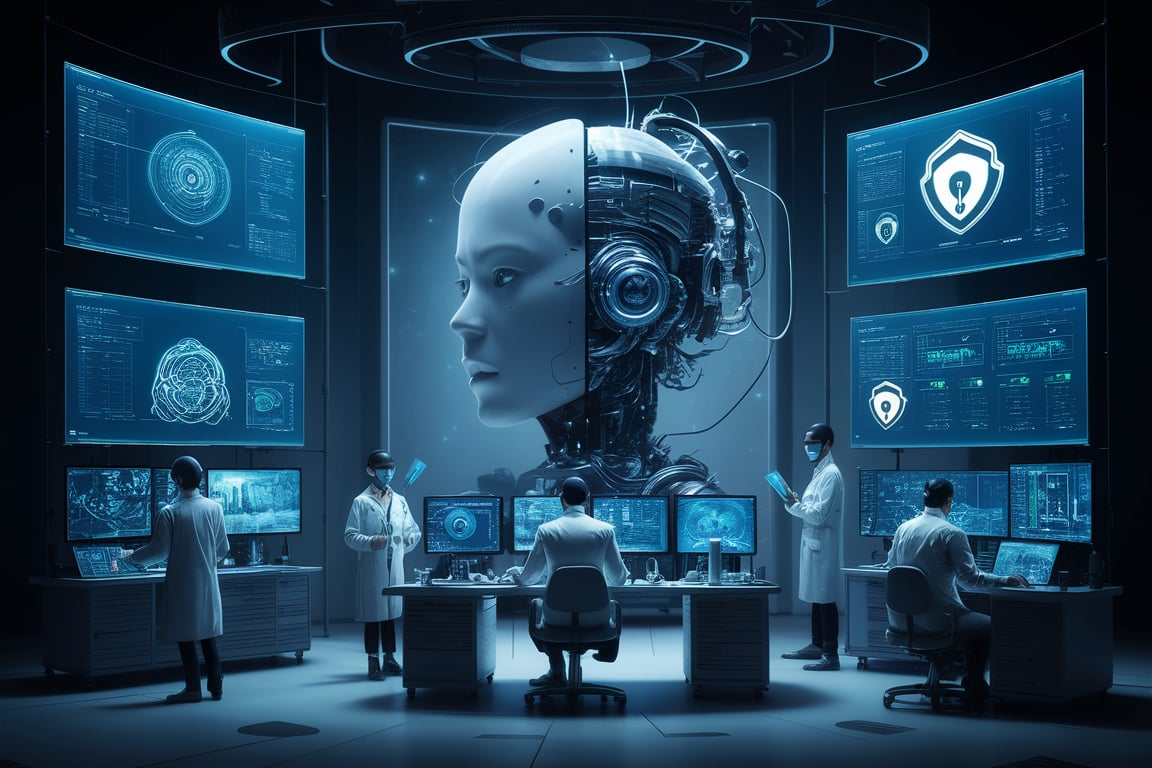 AI
AI
 AI
AI
 AI
AI
The California State Assembly’s Appropriations Committee today voted in favor of a proposed law to regulate the artificial intelligence industry that has drawn the ire of some in Silicon Valley and federal lawmakers.
SB 1047, the Safe and Secure Innovation for Frontier Artificial Intelligence Models Act, would require developers of “frontier” models — models that cost at least $100 million to train — to implement safeguards and safety testing frameworks. The bill would also require companies with such models to undergo audits and give “reasonable assurance” that the models won’t cause a catastrophe. Developers would have to report their safety work to state agencies.
According to Fast Company, the bill would also establish a new agency called the Frontier Model Division, which would help the California state government with enforcement of the bill and creation of new safety standards.
The bill, which has faced opposition from big tech companies such as Meta Platforms Inc. and Google LLC, also proposes the establishment of “CalCompute,” a publicly funded computer cluster program aimed at providing operational expertise and user support for creating “equitable” AI innovation.
Though the bill has strong support in the California Assembly, which is dominated by Ro Khanna and Zoe Lofgren, Democratic members of Congress who represent Silicon Valley, have expressed concern that the bill could stifle innovation.
“As the representative from Silicon Valley, I have been pushing for thoughtful regulation around artificial intelligence to protect workers and address potential risks, including misinformation, deepfakes and an increase in wealth disparity,” Rep. Khanna said in a statement. “I agree wholeheartedly that there is a need for legislation and appreciate the intention behind SB 1047, but am concerned that the bill as currently written would be ineffective, punishing of individual entrepreneurs and small businesses, and hurt California’s spirit of innovation.”
Lofgren, a ranking member of the House Committee on Science, Space and Technology, said separately that the bill is “heavily skewed” toward addressing hypothetical risks “while largely ignoring demonstrable AI risks like misinformation, discrimination, nonconsensual deepfakes, environmental impacts and workforce displacement.”
With the ongoing criticism, the bill has had some minor amendments, with TechCrunch reporting that the revised bill will no longer require AI labs to submit certifications of safety test results “under penalty of perjury.” With the amendments, the AI labs will only be required to submit public statements outlining their safety practices without the threat of criminal liability.
Others also opposing the bill include Christopher Nguyen, chief executive of AI startup Aitomatic Inc., who told SiliconValley.com that the bill may affect startup companies that rely on large language models such as Meta’s Llama 31.
“We depend very much on this thriving ecosystem of open-source AI,” Nguyen said. “If we can’t keep state-of-the-art technology accessible, it will immediately impact the startup ecosystem, small businesses, and even the man on the street.”
The amended bill, as it stands, is now being forwarded to the California Assembly for approval. Given the Democratic majority, it’s only a question now of when it will pass and become law.
Support our mission to keep content open and free by engaging with theCUBE community. Join theCUBE’s Alumni Trust Network, where technology leaders connect, share intelligence and create opportunities.
Founded by tech visionaries John Furrier and Dave Vellante, SiliconANGLE Media has built a dynamic ecosystem of industry-leading digital media brands that reach 15+ million elite tech professionals. Our new proprietary theCUBE AI Video Cloud is breaking ground in audience interaction, leveraging theCUBEai.com neural network to help technology companies make data-driven decisions and stay at the forefront of industry conversations.